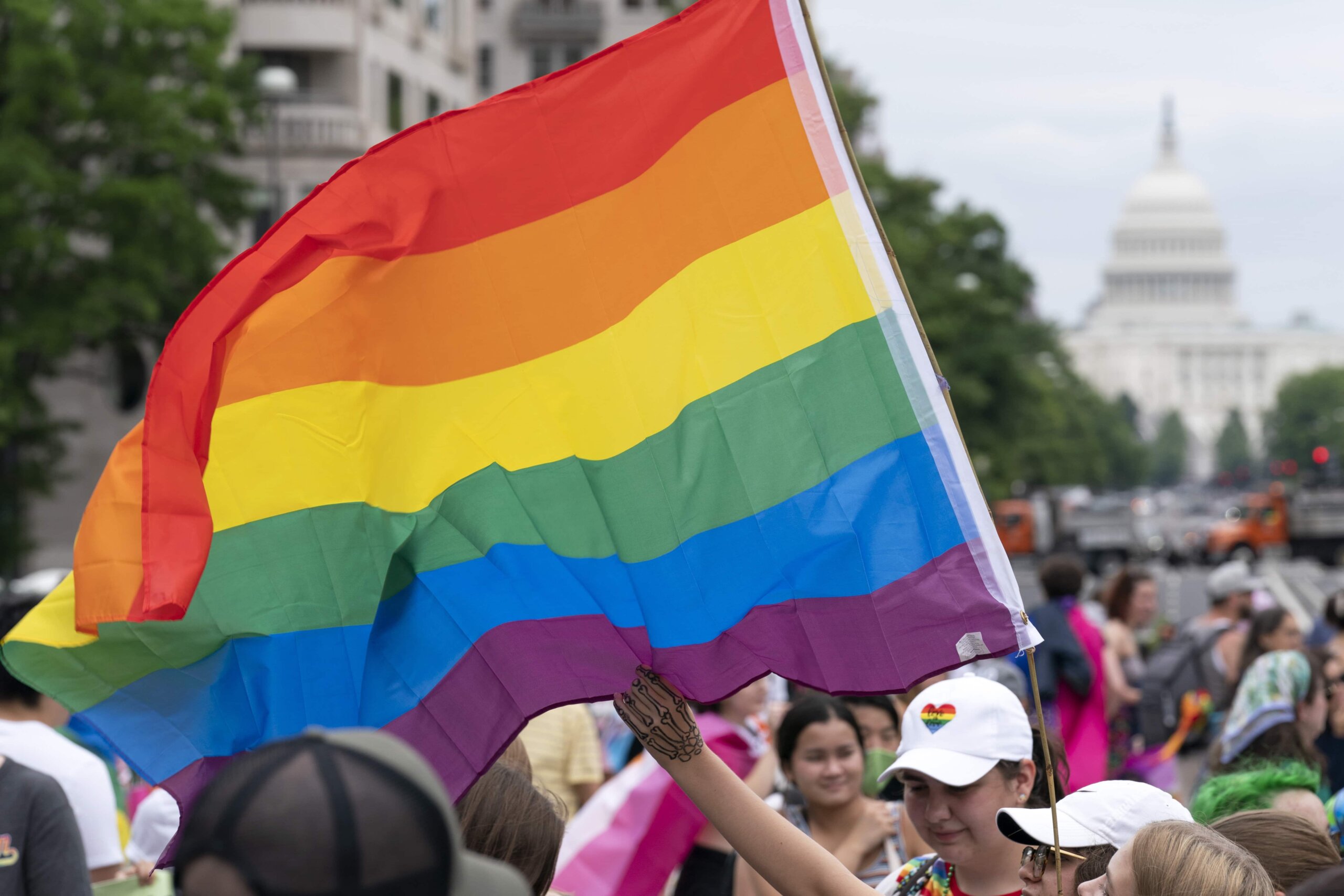A record number of LGBTQ2S+ candidates in the U.S. are running for Congress in spite—or perhaps because—of the unprecedented attacks on queer and trans Americans.
At least 104 openly LGBTQ2S+ candidates ran for Congress in 2022, according to new data from the LGBTQ Victory Fund released on June 21. That figure marks a nearly 20 percent increase over 2020, when 87 queer and trans people sought a seat in the national legislature. Of the 104 to declare their candidacy this year, the non-partisan political action group notes that 57 are still on the ballot for November.
Currently, 11 LGBTQ2S+ people are serving in Congress: two in the Senate and nine in the House of Representatives. The Victory Fund said that more representation is necessary to ensure the concerns of queer and trans people are reflected in matters of national concern.
“The 11 LGBTQ members of Congress currently serving have delivered meaningful results for our community time and time again, despite being woefully outnumbered,” Victory Fund Press Secretary Albert Fujii told the LGBTQ2S+ newspaper Washington Blade. “But with a Supreme Court hell-bent on choosing politics over precedent, our congressional champions desperately need backup to ensure our fundamental human rights are not rolled back to a time when bigotry was the law of the land.”
Fujii’s statement refers to the likely repeal of Roe v. Wade by the U.S. Supreme Court, a decision that is expected in the coming days. In a leaked draft opinion published by Politico in May, Justice Samuel Alito referred to the 1973 decision mandating a constitutional right to abortion as “egregiously wrong from the start.” Many worry Roe’s reversal will open the door to attacks on LGBTQ2S+ equality.
But even if the Supreme Court does not roll back reproductive rights, the LGBTQ2S+ community in the U.S. is still under attack. More than 300 bills targeting queer and trans people have been introduced to state legislatures this year—the majority of which seek to deny gender-affirming medical care and athletics opportunities to trans youth.
“With a Supreme Court hell-bent on choosing politics over precedent, our congressional champions desperately need backup.”
LGBTQ2S+ advocates believe that having diverse representation in Congress can help fend off these attacks, and many of this year’s crop of candidates would represent historic firsts. Long Beach mayor Robert Garcia is currently running to represent California’s 42nd Congressional District, and if elected in November, he would be the first LGBTQ2S+ immigrant to serve in Congress. North Carolina’s Jasmine Beach-Ferrara and Vermont’s Becca Balint would be the first LGBTQ2S+ representatives in Congress from their respective states.
But while 45 percent of this year’s crop of LGBTQ2S+ candidates are people of colour, much progress remains to be made in ensuring that America’s congressional pool represents the diversity of the community. Currently, no trans person has ever been elected to Congress in the U.S., despite politicians like Danica Roem and Stephanie Byers serving at the state legislative level, and there are no trans candidates on the congressional ballot for November.
LGBTQ2S+ advocates remain hopeful that further progress is coming after “rainbow wave” candidates have broken major barriers for inclusion in recent years. That term was coined by the New York Times to describe the historic number of LGBTQ2S+ people running for office, and recent history-makers have included Kansas’ Sharice Davids, the first queer Native American woman to serve in Congress; Mondaire Jones, the first Black gay man to serve as the freshman class’s representative to House leadership; and Sarah McBride, the first trans state senator in U.S. history.
“Gaining equitable representation in Congress would not only increase our political power and increase the odds our rights are finally codified into federal law, it would send a crystal clear message that anti-LGBTQ vitriol will not prevail,” Fujii said. “Until then, we are proud to keep building a bench of highly qualified LGBTQ leaders.”


 Why you can trust Xtra
Why you can trust Xtra


